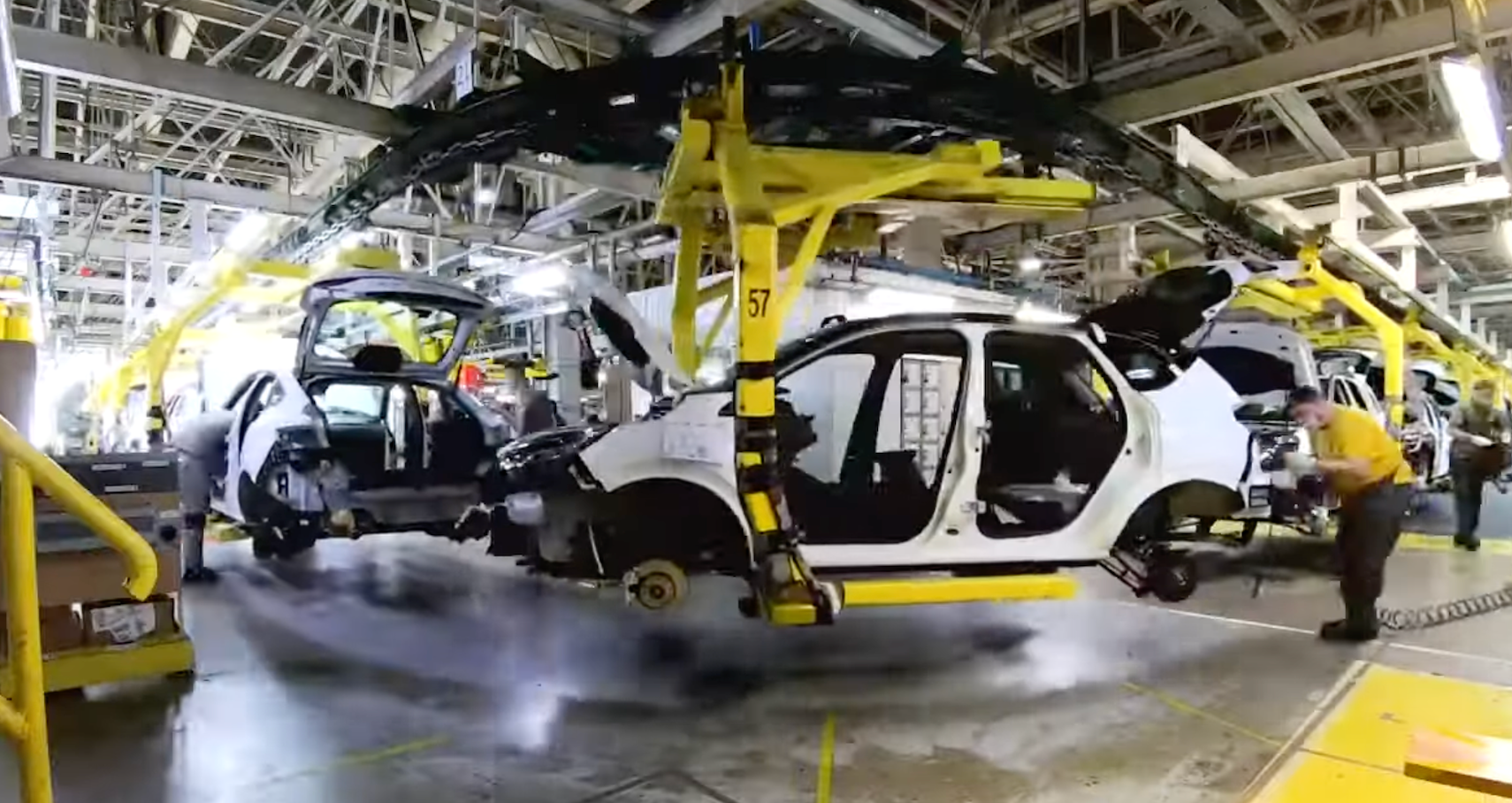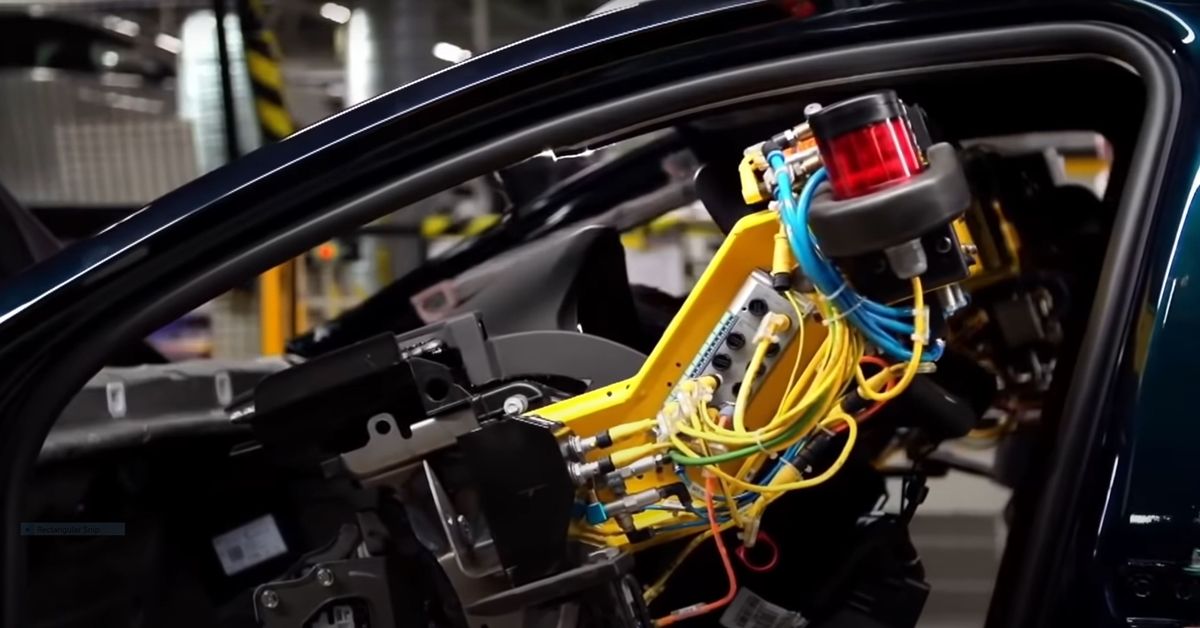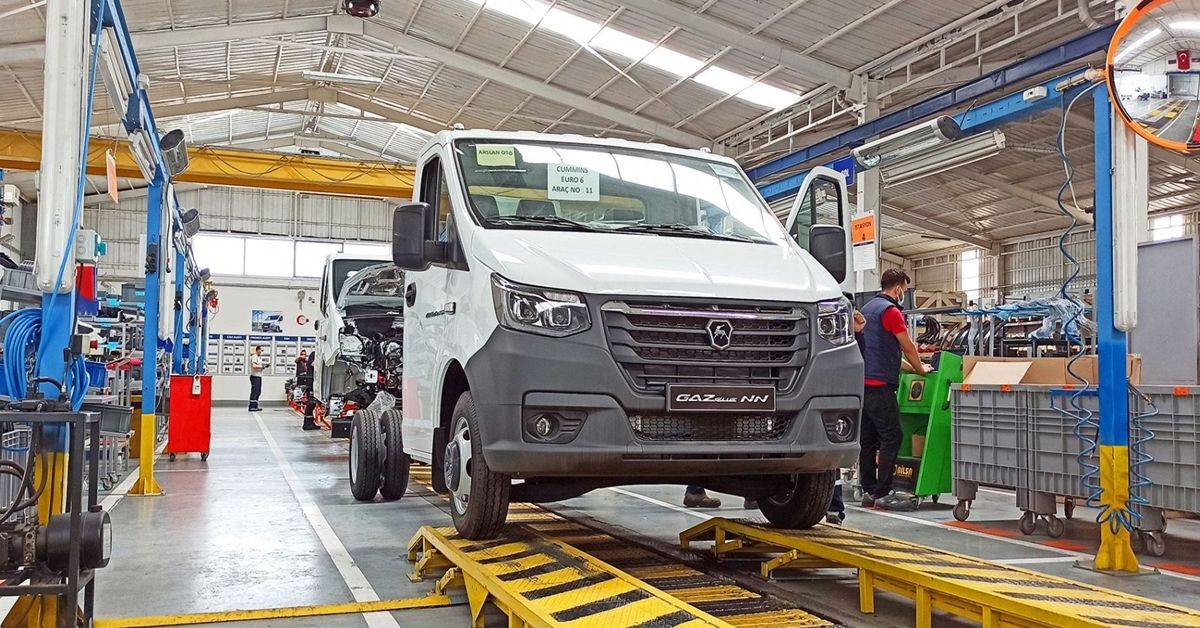New U.S. sanctions and Moscow's invasion of Ukraine could have far-reaching consequences for the already tight global auto supply chain, but only a few manufacturers have significant exposure in Russia. To provide context, Russia produced roughly 1.7 million cars back in 2018, with major automakers such as Renault-Nissan-Mitsubishi, Hyundai, and Volkswagen accounting for more than half of that. Stellantis, a subsidiary of Chrysler, also manufactures vehicles in Russia.
The sanctions targeting the Russian economy may include limits on the Nord Stream 2 pipeline, exclusion of Russia from the SWIFT international financial system, and restrictions on large institutions, organizations, and persons. They may also include a prohibition on the shipment of critical goods to Russia, such as semiconductors, which would surely have an effect on vehicle manufacturing. As a result of supply chain issues and disruptions, such as the global semiconductor shortage, prices for new cars will increase further.
Sanctions Will Result In Production Cuts, Which Will Affect The Supply Chain
Everything from a basic computer to an autonomous car is dependent on semiconductors. The scarcity of these components has already prompted concerns about the future and growth of several businesses.
The restrictions imposed in the aftermath of Covid-19 have had an adverse effect on manufacturing and, consequently, the supply chain, and the ongoing Russia-Ukraine conflict is set to exacerbate the situation further, as both countries are critical exporters of raw materials used in the manufacture of various chip sets.
Car manufacturers and component suppliers in the United States, Europe, and Asia are expected to suffer severe collateral damage as the Ukraine conflict worsens. Russia has a sizable manufacturing base, with a number of foreign-owned plants such as Stellantis, Volkswagen, and Renault. With a significant portion of the parts used in Russian-made autos coming from elsewhere - particularly the United States, which has slapped additional sanctions targeting the Russian economy - those assembly factories may struggle to remain operational while sanctions are in place.
Prices For Key Metals Used In Auto Manufacturing Are Already Skyrocketing
Russia is a major supplier of many key metals used in auto manufacturing worldwide. One of the supply-chain concerns resulting from Russia's full-scale invasion of Ukraine is the non-availability of metals such as palladium, platinum, and rhodium used in exhaust-gas catalytic converters. According to news sources on Thursday, palladium prices had already skyrocketed.
Among other metals, aluminum's light weight and durability make it ideal for certain automotive parts such as engine radiators, rims, bumpers, suspension parts, engine cylinder blocks, and transmissions. For example, Ford uses aluminum in one of its crown jewels, the F-150 truck.
Furthermore, Russia is the world's third-largest supplier of nickel for lithium-ion batteries and provides 40% of the palladium used in catalytic converters found in all gasoline and diesel vehicles. A shortage of nickel resources, however, could put an end to the production of electric vehicle batteries, which would undermine the Biden administration's goal of having EVs account for up to half of all new vehicles by 2030.
There are additional supplies of nickel - Indonesia and the Philippines being the two largest - but demand and costs have been increasing, and automakers may confront similar issues to those encountered with palladium.
Carmakers With Most Exposure To Russian Car Market
Suppose Russian President Vladimir Putin retaliates against the West by shutting off supplies. In that case, automakers are expected to find alternative sources of supply, otherwise they won't be able to produce cars with internal combustion engines. Meanwhile, large manufacturers, including Volkswagen, Renault, and tire maker Nokian Tires, have announced plans to downsize or relocate manufacturing facilities.
Stellantis operates a facility in Kaluga, Russia, southwest of Moscow, which the company co-owns with Mitsubishi. In January, the business stated that it would soon start selling Russian-made commercial vehicles to other parts of Europe. In that announcement, the corporation, which also owns the Jeep, Ram, Dodge, and Fiat brands, stated that manufacturing of vehicles from its Peugeot, Citroën, and Opel brands in the country had more than doubled from the previous year to 2020.
In the event of Western sanctions affecting Stellantis' work, the company is ready to move its production from Russia or limit its production there. “If we cannot supply the plant, if that is the reality, we have either to transfer that production to other plants, or just limit ourselves", said the Chief Executive Carlos Tavares of Stellantis.
According to Reuters, Renault may also halt production at its Moscow assembly factory in the next days due to forced changes in established logistic channels that are generating component shortages.
Russian Automakers, Likewise, Have Reason To Be Concerned
Russian automakers rely on foreign suppliers for 25% of the parts required to keep their own auto assembly factories working. Gaz Group, for example, has acknowledged that sanctions will force it to suspend production. Gaz manufactures light and medium-duty commercial vehicles, buses, and automotive components for both domestic and overseas markets.
In light of the unstable nature of the auto supply chain, analysts believe it is too early to estimate the full extent of the Ukraine crisis' impact on the auto sector-but there are certainly reasons for concern.



